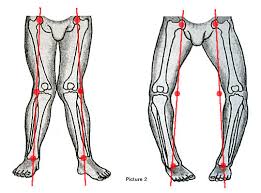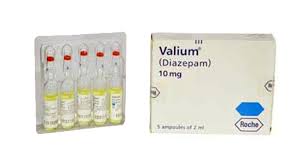ony Lee Cason, a burly patient at Timberlawn Mental Health System in Dallas, Texas,
was standing outside his room at 1 pm on June 30 when Ruth Anne MarDock, MD,
rounded a hallway corner and met him face to face.
The 55-year-old Cason had just heard that he was being transferred to
another facility, "which appeared to upset him," according to a Dallas police report. Six
feet tall and weighing 213 pounds, he "violently tackled" the petite
Dr MarDock, some 8 inches shorter, and slammed her to the floor.
She struck her head, lost consciousness, and died 2 days later. Cason now
faces manslaughter charges.
Things might have been different, however, had the state of Texas carried out its
threat to shut down the 99-year-old hospital over safety issues involving not
clinicians but patients.
Her death highlights the outsized threat of workplace violence directed
against physicians, nurses, and other healthcare workers, who experience 50% of
all job-related assaults, according to the US Bureau of Labor Statistics. The risk
for violence is even higher for workers in inpatient psychiatric facilities, a
number of studies have
found.
"Your first duty is to protect yourself," said psychiatrist
Catherine Fontaine, MD, who worked with Dr MarDock at Timberlawn until late
2014. "If you're not there to take care of anyone, who will?
"You have to be alert. You don't wear scarves around your neck when you
walk into a patient's room. You watch your back."
Physicians wary of workplace assaults also have to watch hospital
administrators, who make decisions that directly bear on security. The
Occupational Safety and Health Administration said in a 2015 report that the
risk for violence in healthcare facilities goes up when they are understaffed,
when workers are poorly trained in recognizing and managing hostile and
assaultive behavior, and when turnover is high.
 Booted Out of Medicare and Medicaid
Booted Out of Medicare and Medicaid
Timberlawn is owned by Universal Health Services (UHS), a publicly traded
operator of 230 behavioral health facilities, 24 acute-care hospitals, and a
smattering of surgical hospitals, radiation oncology centers, and freestanding
emergency departments. Headquartered in King
of Prussia, Pennsylvania,
UHS earned $680 million on revenues of $9 billion in 2015.
Critics of its 200-odd psychiatric hospitals accuse it of understaffing and
skimping on worker training — jeopardizing patient and worker safety in the
process — to fatten the bottom line. Unsafe conditions at its facilities have
been the subject of newspaper investigations in Chicago,
Boston, and Dallas as well as federal and state probes.
In its defense, UHS points to an average patient satisfaction score of 4.47
out of 5, a higher percentage of top performing facilities compared with its
competitors, as judged by the Joint Commission, and a 100% success rate for
hospital reaccreditations in its history, among other kudos.
In the course of treating some 2.5 million patients per year,
"irregular and unpredictable events occasionally occur, including
instances of alleged noncompliance with regulatory requirements," UHS told
the
Dallas Morning News earlier this year.

Acquired by UHS in 1997, Timberlawn was once a prestigious institution where
rich, private-pay patients came for psychoanalysis and long-term stays.
"Timberlawn is for the maladjusted wealthy bourgeoisie," a former
patient quipped in a
Texas Monthly article in 1976
Today's patient base has broadened to include the poor, the uninsured, and
those brought in by the police for an involuntary evaluation because they may
pose a risk to themselves or others. The decision about 6 years ago to accept
police pickups off the street "upped the ante in terms of safety
issues," said Dr Fontaine. "Of course, nobody asked us."
Timberlawn has run afoul of its biggest payer, the Centers for Medicare
& Medicaid Services (CMS). In August 2015, the CMS booted Timberlawn out of
Medicare because of "deficiencies that represented an immediate jeopardy
to patient health and safety." The decision followed an investigation
triggered by the December 2014 suicide of a 37-year-old female patient who
hanged herself from a closet doorknob. The CMS said the patient wasn't watched
carefully enough and that Timberlawn knew doorknobs posed a "ligature
risk." The CMS spotted similar violations in 2015, including the failure
to protect a 10-year-old girl who suffered a head injury when she was assaulted
by two teenagers.

Following the lead of the CMS, the Texas Medicaid program dropped Timberlawn
as well. The hospital has reapplied to participate in Medicare and Medicaid.
It's maintained that the loss of government reimbursement would force it to
shut down. Timberlawn has managed to stay open, but only by laying off
employees and curtailing services.
The choice of staying open may be out of the hospital's hands, though. After
investigating patient protection issues there, the Texas Department of State
Health Services (DSHS) told Timberlawn in December 2015 that it was going to
revoke its license and fine it $1 million. The state has yet to pull the
trigger on its decision.
"We are evaluating the results of our recent visits to Timberlawn and
any other new information before we finalize our next steps," DSHS
spokesperson Carrie Williams told
Medscape Medical News. Williams noted
that her agency was aware of Dr MarDock's death.
When asked if her death confirmed the determination by the CMS and Texas that the hospital
was not safe, Timberlawn CEO James Miller said no.
"Our initial evaluation indicates that all appropriate procedures, practices
and protocols were in effect at the time of this tragic event including
appropriate staffing levels," Miller said in an email to
Medscape
Medical News.
In a separate statement, Timberlawn called Dr MarDock "a woman of unparalleled
integrity and great character with an endless compassionate and giving heart.
"Dr MarDock was an extremely valued member of the hospital who will be
missed by all," the hospital said. "Timberlawn Mental Health System
remains dedicated and committed to its mission of providing the highest quality
of care to patients with special, and sometimes complex, mental health
needs."
"She Wanted to Get Timberlawn Back on Its Feet"
The daughter of Julian MarDock, MD, a prominent Dallas
physician, she earned an MD at the University of Texas Health Science Center in
San Antonio and
completed a psychiatry residency at Timberlawn. She worked there from 1985
through 1990, returning there for good in 2003, according to her obituary in
the
Dallas Morning News.
She practiced outpatient psychiatry at ABC Behavioral Health, where she
enjoyed a close bond with patients, so much so that they "never minded
waiting to see her," said Myrl Humphries, its president and CEO.
"That is unusual with the clients. Mostly they hate to wait — except for
her." Dr Catherine Fontaine remembered her as "warm and empathic,
easy to talk to."
Mark Unterberg, MD, a former executive medical director at Timberlawn,
called Dr MarDock "an excellent physician" and a "consummate
professional."
"She [treated] that population of people who have addictions, homeless
men and women, people who have poor control over their impulses," Dr
Unterberg told
Medscape Medical News. "She seemed dedicated to
working with them. Not everyone wants to."
Dr Fontaine recalled a therapist once remarking that Dr MarDock — and
herself — were "mavericks in a man's world," referring to inpatient
psychiatry and its volatility. "Dr MarDock showed that a woman can do
it," said Dr Fontaine.
Even though she had other career options, Dr MarDock chose to remain at
Timberlawn, "which was a pretty rough place," she said. "She
wanted to get Timberlawn back on its feet."
On the job, Dr MarDock was an efficient sort who did not waste time making
small talk with her colleagues, said Dr Unterberg, her former boss. "She
came in and focused on patients, charts, and what needed to be done."
But if she struck some as quiet and reserved at the hospital, Dr MarDock
displayed a livelier side elsewhere. She played the ukulele, took scriptwriting
classes, enjoyed dancing, and threw parties with her husband, film producer Joe
Dishner. Dr Fontaine recalled the "artistic types" in attendance.
"You had this feeling of avant-garde," she said.
A friend of Dr MarDock put it this way in a remembrance published in the
Austin
Chronicle: "She is intimate with all, the best and the brightest, the
lunatic fringe and the almost dangerous."
In addition to her husband, she is survived by her son George Dishner and
her daughter Emma Dishner, MD.







